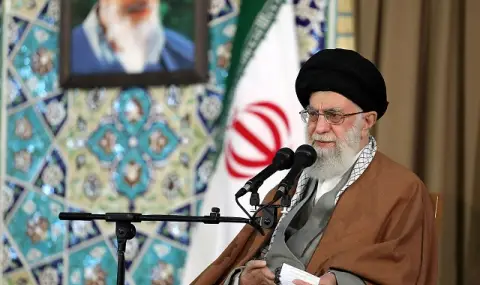The exchange of threats between the US and Iran is in full swing. Tehran warns of a "strong counterattack" if Washington takes military action. How dangerous could Iran become for the US?
Tensions between Iran and the US continue to escalate. On Monday (March 31), Iran complained to the UN Security Council about "reckless and aggressive" statements by US President Donald Trump, calling them "a gross violation of international law". A day earlier, Trump threatened to bomb Iran if Tehran did not agree to a new nuclear deal. "There will be bombing like you've never seen before," he told NBC. The Islamic Republic's Supreme Leader, Ayatollah Khamenei, immediately warned that if Washington carried out its threats, "there will definitely be a strong counterattack."
A war scenario?
Since the start of the regional war in the Middle East, Iran's deterrence strategy has clearly not been as successful, says Dr. Farzan Sabet, an arms control expert and director of research at the Geneva Institute in Switzerland. However, Tehran still has significant military resources, Sabet says. With the help of missiles, drones and operations within the "axis of resistance," Iran can inflict massive destruction beyond its borders.
One likely target of these attacks could be US military bases in the region. Brigadier General Amir Ali Hajizadeh, commander of the Revolutionary Guards' Aerospace Forces, also said: "The Americans have at least ten bases in the region around Iran with more than 50,000 soldiers. They are sitting in a glass house." If there is an American attack, Iran will also target the British-American military base on the island of Diego Garcia in the Indian Ocean, a senior Iranian military official told the British newspaper, the Daily Mail. Diego Garcia is the last remaining British territory in the Indian Ocean. It will not matter to Tehran whether the British or American military is involved, what will matter is whether this base is used for a military attack on Iran.
"We will be forced to acquire nuclear weapons"
In the event of an attack, Iran will have no choice but to acquire nuclear weapons, Ali Larijani, an adviser to Ayatollah Khamenei, said on state television on Monday night. "We are not trying to make nuclear weapons. But if you make a mistake on the nuclear issue in Iran, you will force us, because the country must defend itself," he said. "No matter what calculations you make, it is not in your interest. We believe that America should find another way and change its behavior once and for all, instead of fighting Iran."
The US government, other Western countries and Israel want to prevent Iran from developing nuclear weapons. In 2018, during his first term, Donald Trump unilaterally withdrew the United States from the nuclear deal signed in Vienna in 2015, which was intended to limit Iran's nuclear program in exchange for the gradual lifting of sanctions against Tehran. As a result of his decision, Iran also stopped complying with the terms of the deal.
Iran continues to claim that its nuclear research is only for peaceful purposes. However, in recent months, Iranian politicians have made increasingly contradictory statements. Some want a change in the country's nuclear policy, while others hint that nuclear weapons may also be developed.
All sanctions against Tehran should be reimposed
"In a military conflict with Iran, the United States will certainly prevail," says Farzan Sabet. "But such a victory would lead to a relatively large-scale and prolonged military action with significant American casualties and possible attacks on US allies and their strategic assets. Thus, the war would have a significant impact on the global economy. I do not think President Trump wants such a conflict. He will probably first prioritize all other options, such as new sanctions in the UN Security Council, before starting a more serious armed conflict."
Despite the public rhetoric, diplomatic efforts also appear to be underway behind the scenes. The US president wrote a letter to Khamenei in early March, demonstrating that he is ready to negotiate. On March 27, the leaders of the Iranian regime confirmed that they had responded to the letter. However, direct talks have not taken place. The two countries do not maintain diplomatic relations.
Iranian President Masoud Pezeshkian, however, has said he is open to indirect negotiations. But that would be complicated and time-consuming. And Iran doesn't have much time to de-escalate. By October 2025, any party to the nuclear deal with Iran can activate the so-called "snapback" clause and automatically restore all sanctions on Tehran.
